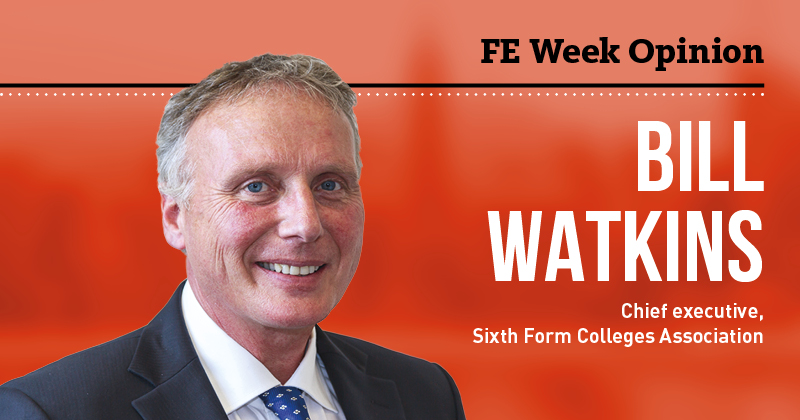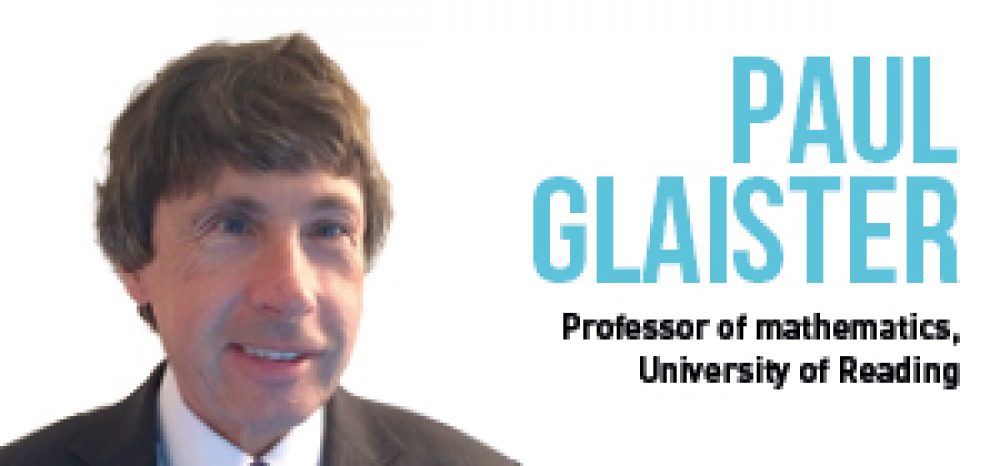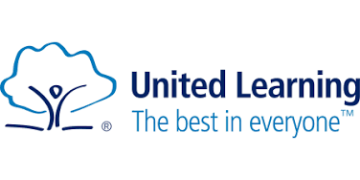The chancellor has announced £600 for each additional student studying maths at level three. Paul Glaister, explains why core maths is such an important qualification
After nearly four years of much hard work to introduce a qualification that will enable far more learners to develop the mathematical, quantitative and statistical skills to be better prepared for work, life and further study, the government has provided a welcome further endorsement for core maths.
Even though it was highly recommended by Sir Adrian Smith’s independent review of 16-to-18 mathematics, core maths is still commonly less well understood than the A-level. So here’s an explainer.
What is core maths?
Core maths is a post-16/level three qualification taken alongside A-levels, or other level three qualifications, complementing a range of academic and technical programmes. It is designed for students to retain, deepen and extend their knowledge and skills from GCSE, as well as studying and applying new level three material relevant to their needs.

The primary focus is on using and applying mathematics and statistics to address authentic problems and real-life scenarios, drawn from study, work and life, with a strong emphasis on problem-solving.
Core maths has three key objectives:
- deepen competence in the selection and use of methods and techniques
- develop confidence in representing and analysing authentic situations and in applying mathematics to address related questions
- build skills in mathematical thinking, reasoning and communication
Who is core maths for?
It is suitable for students who achieved a grade 4 or above (formerly a C) at GCSE, who do not wish to study AS or A-level but who do wish to develop their mathematical, statistical and quantitative skills.
There are approximately 271,000 such students each year who would not otherwise continue to study mathematics, many of whom intend to go on to further study of quantitative subjects for which core maths is hugely relevant.
Core maths for students who need to be equipped for the mathematical and quantitative demands of other courses and employment, but it is also particularly relevant for those who need to these skills to meet the demands of a range of courses in higher education. In fact, over 40 universities this year made a statement in support, and it was publically endorsed by the Russell Group of research-intensive universities.
How is core maths taught?
Key to students’ success in core maths is the commitment that:
- they make to learning through collaboration and problem solving – both vital for future studies and work
- their teachers make by embracing collaboration between each-other and with students, and to teaching through problem-solving.
Group work and discussion is strongly encouraged, with content studied and skills acquired through focusing on contexts, developing fluency and confidence in applying mathematical skills, even when applying known techniques and methods to new problem areas, and will include examples from economics, sociology, psychology, chemistry, geography, computing, and business and management.
Where is the CPD for it?
There is wealth of knowledge and experience in the teaching of core maths across hundreds of schools and colleges, including the highly-skilled core maths leads who provided CPD for early adopters as part of the core maths support programme. The sector will be well-served by this network of professionals.
The level three maths support programme starting in April 2018 will provide high-quality professional development, support and resources for teachers of core maths, as well as those teaching AS/A-level mathematics and further mathematics.
The STEM learning site is an excellent place to find out more and, access a rich bank of resources, including problems, activities, contexts and case studies, many of which were developed as part of the CMSP.
Why is core maths so important?
Core maths will raise the skill levels in students across the nation in using and applying maths, whatever further study, training or employment they progress to. Increasing participation in mathematics after 16 in this way is hugely important to the future productivity of the UK.
Paul Glaister is professor of mathematics and mathematics education at the University of Reading






After reading this, I have no idea what you are talking about. How the heck do I help my grandson with homework in the so called math?